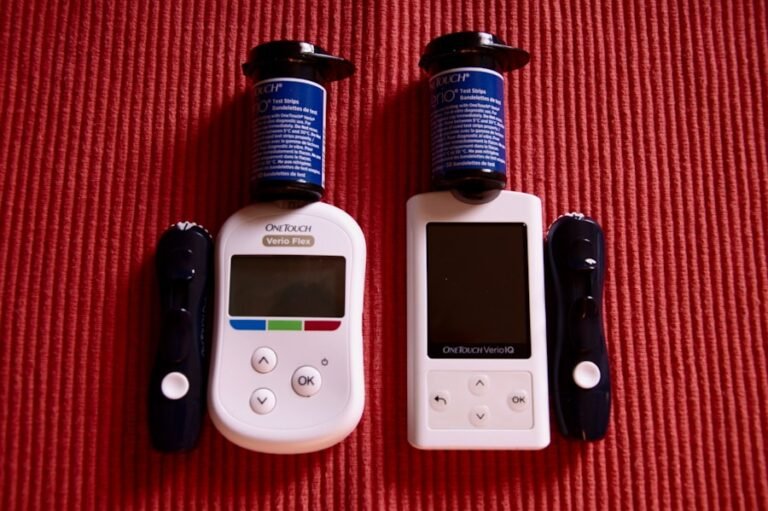Managing Type 2 Diabetes: Tips for a Healthier Lifestyle
Type 2 diabetes is a chronic condition that affects the way the body metabolizes glucose, a crucial source of energy for cells. Unlike Type 1 diabetes, where the body fails to produce insulin, Type 2 diabetes is characterized by insulin resistance, meaning that the body’s cells do not respond effectively to insulin. This resistance leads to elevated blood sugar levels, which can result in a range of health complications if left unmanaged.
The condition is often associated with obesity, sedentary lifestyles, and genetic predisposition, making it a multifaceted health issue that requires a comprehensive approach to management. The prevalence of Type 2 diabetes has been rising alarmingly across the globe, with the World Health Organization estimating that over 422 million people were living with diabetes in 2014. This increase is attributed to various factors, including urbanization, dietary changes, and reduced physical activity.
Symptoms of Type 2 diabetes can be subtle and may include increased thirst, frequent urination, fatigue, and blurred vision. However, many individuals may remain asymptomatic for years, underscoring the importance of regular screening and awareness of risk factors. Understanding the underlying mechanisms of Type 2 diabetes is essential for effective management and prevention strategies.
Table of Contents
Key Takeaways
- Type 2 diabetes is a chronic condition that affects the way the body processes blood sugar
- A balanced diet plan for type 2 diabetes should include a variety of fruits, vegetables, lean proteins, and whole grains
- Regular exercise, such as walking or swimming, can help manage blood sugar levels and improve overall health
- Monitoring blood sugar levels regularly can help individuals with type 2 diabetes make informed decisions about their diet and exercise
- Managing stress and mental health is important for individuals with type 2 diabetes, and can be achieved through activities like meditation or yoga
Creating a Balanced Diet Plan
Carbohydrate Management
Carbohydrates have the most significant impact on blood glucose levels. Therefore, it is vital to focus on complex carbohydrates such as whole grains, legumes, and vegetables, rather than simple sugars found in processed foods. For example, swapping white bread for whole grain options can lead to more stable blood sugar levels due to the higher fiber content that slows down glucose absorption.
Incorporating Nutrient-Dense Foods
In addition to carbohydrate management, incorporating a variety of nutrient-dense foods is vital. Lean proteins such as chicken, fish, and plant-based sources like beans and lentils can help maintain muscle mass while providing essential amino acids. Healthy fats from sources like avocados, nuts, and olive oil can also play a role in reducing inflammation and improving heart health, an important consideration for individuals with diabetes who are at higher risk for cardiovascular diseases.
Meal Planning for Overall Health
Meal planning that includes a colorful array of fruits and vegetables not only ensures adequate vitamin and mineral intake but also promotes satiety and helps in weight management. By incorporating a balanced diet into their lifestyle, individuals with Type 2 diabetes can effectively manage their condition and reduce the risk of related health complications.
Incorporating Regular Exercise

Regular physical activity is a cornerstone of diabetes management and offers numerous benefits beyond blood sugar control. Engaging in aerobic exercises such as walking, cycling, or swimming can enhance insulin sensitivity, allowing the body to utilize glucose more effectively. The American Diabetes Association recommends at least 150 minutes of moderate-intensity aerobic activity per week, which can be broken down into manageable sessions throughout the week.
For example, a brisk 30-minute walk five days a week can significantly contribute to overall health improvements. In addition to aerobic exercise, incorporating strength training into one’s routine is equally important. Resistance exercises help build muscle mass, which can further enhance metabolic rate and improve glucose uptake by cells.
Activities such as weight lifting or bodyweight exercises like squats and push-ups can be performed two to three times a week. Moreover, finding enjoyable activities can increase adherence to an exercise regimen; whether it’s dancing, hiking, or joining a local sports team, the key is to stay active in ways that feel rewarding.
Monitoring Blood Sugar Levels
| Date | Time | Blood Sugar Level (mg/dL) |
|---|---|---|
| 01/01/2022 | 08:00 AM | 120 |
| 01/01/2022 | 12:00 PM | 140 |
| 01/01/2022 | 04:00 PM | 130 |
| 01/01/2022 | 08:00 PM | 110 |
Monitoring blood sugar levels is an essential practice for individuals managing Type 2 diabetes. Regularly checking glucose levels provides valuable insights into how food choices, physical activity, and stress affect blood sugar control. Many people with diabetes use glucometers to measure their blood glucose at home; this allows for immediate feedback and helps in making informed decisions regarding diet and exercise.
For instance, if a person notices that their blood sugar spikes after consuming a particular food item, they can adjust their diet accordingly. Continuous glucose monitoring (CGM) systems have also gained popularity in recent years. These devices provide real-time data on blood sugar levels throughout the day and night, allowing for more precise management of diabetes.
CGMs can alert users to high or low blood sugar levels before they become problematic, enabling timely interventions. Understanding patterns in blood sugar fluctuations can empower individuals to take control of their health and make necessary lifestyle adjustments to maintain optimal glucose levels.
Managing Stress and Mental Health
The relationship between stress and Type 2 diabetes is complex yet significant. Chronic stress can lead to elevated cortisol levels, which may contribute to insulin resistance and poor blood sugar control. Additionally, stress often triggers unhealthy coping mechanisms such as overeating or neglecting physical activity, further exacerbating the condition.
Therefore, managing stress effectively is crucial for individuals living with diabetes. Techniques such as mindfulness meditation, yoga, or deep-breathing exercises can help reduce stress levels and promote emotional well-being. Mental health is another critical aspect of diabetes management that should not be overlooked.
Individuals with Type 2 diabetes are at an increased risk for depression and anxiety due to the challenges of living with a chronic condition. Seeking support from mental health professionals or participating in support groups can provide valuable coping strategies and emotional support. Engaging in activities that bring joy and fulfillment—whether it’s pursuing hobbies or spending time with loved ones—can also enhance mental resilience and improve overall quality of life.
Building a Support System

The Role of Family Members
Family members can play an essential role by participating in healthy meal planning or joining exercise routines together, fostering an environment conducive to positive lifestyle changes.
Support Groups and Online Forums
Support groups specifically tailored for individuals with diabetes can also be incredibly beneficial. These groups offer a platform for sharing experiences, challenges, and successes while providing emotional support from those who understand the unique struggles associated with diabetes management. Online forums and local community organizations often host meetings or events that facilitate connection among individuals facing similar challenges.
Gaining Motivation and Practical Advice
By fostering relationships within these networks, individuals can gain motivation and practical advice that enhances their ability to manage their condition effectively.
Limiting Alcohol Consumption
Alcohol consumption presents unique challenges for individuals with Type 2 diabetes due to its potential effects on blood sugar levels. While moderate alcohol intake may not pose significant risks for everyone, it is essential for those with diabetes to approach alcohol consumption with caution. Alcohol can cause fluctuations in blood sugar levels; for instance, consuming alcohol on an empty stomach may lead to hypoglycemia (low blood sugar), while excessive drinking can result in hyperglycemia (high blood sugar).
Therefore, understanding how alcohol interacts with diabetes medications and overall health is crucial. When choosing to consume alcohol, moderation is key. The American Diabetes Association suggests limiting alcohol intake to one drink per day for women and two drinks per day for men.
Opting for lower-sugar options such as dry wines or spirits mixed with calorie-free mixers can help minimize the impact on blood sugar levels. Additionally, it’s advisable to monitor blood glucose levels before and after drinking to understand how one’s body responds to alcohol consumption better.
Quitting Smoking
Smoking poses significant health risks for everyone but is particularly detrimental for individuals with Type 2 diabetes. The harmful chemicals in tobacco can exacerbate insulin resistance and increase the risk of cardiovascular diseases—a major concern for those already facing heightened risks due to diabetes. Furthermore, smoking can impair circulation and wound healing, leading to complications such as neuropathy or foot ulcers that are more common among diabetics.
Quitting smoking is one of the most impactful lifestyle changes an individual with Type 2 diabetes can make to improve their health outcomes. Various resources are available to assist individuals in their journey toward cessation, including counseling services, nicotine replacement therapies, and support groups tailored for smokers looking to quit. The benefits of quitting smoking extend beyond immediate health improvements; many individuals report enhanced energy levels, better taste perception, and improved overall quality of life after cessation.
By prioritizing smoking cessation as part of their diabetes management plan, individuals can significantly reduce their risk of complications and enhance their long-term health prospects.







